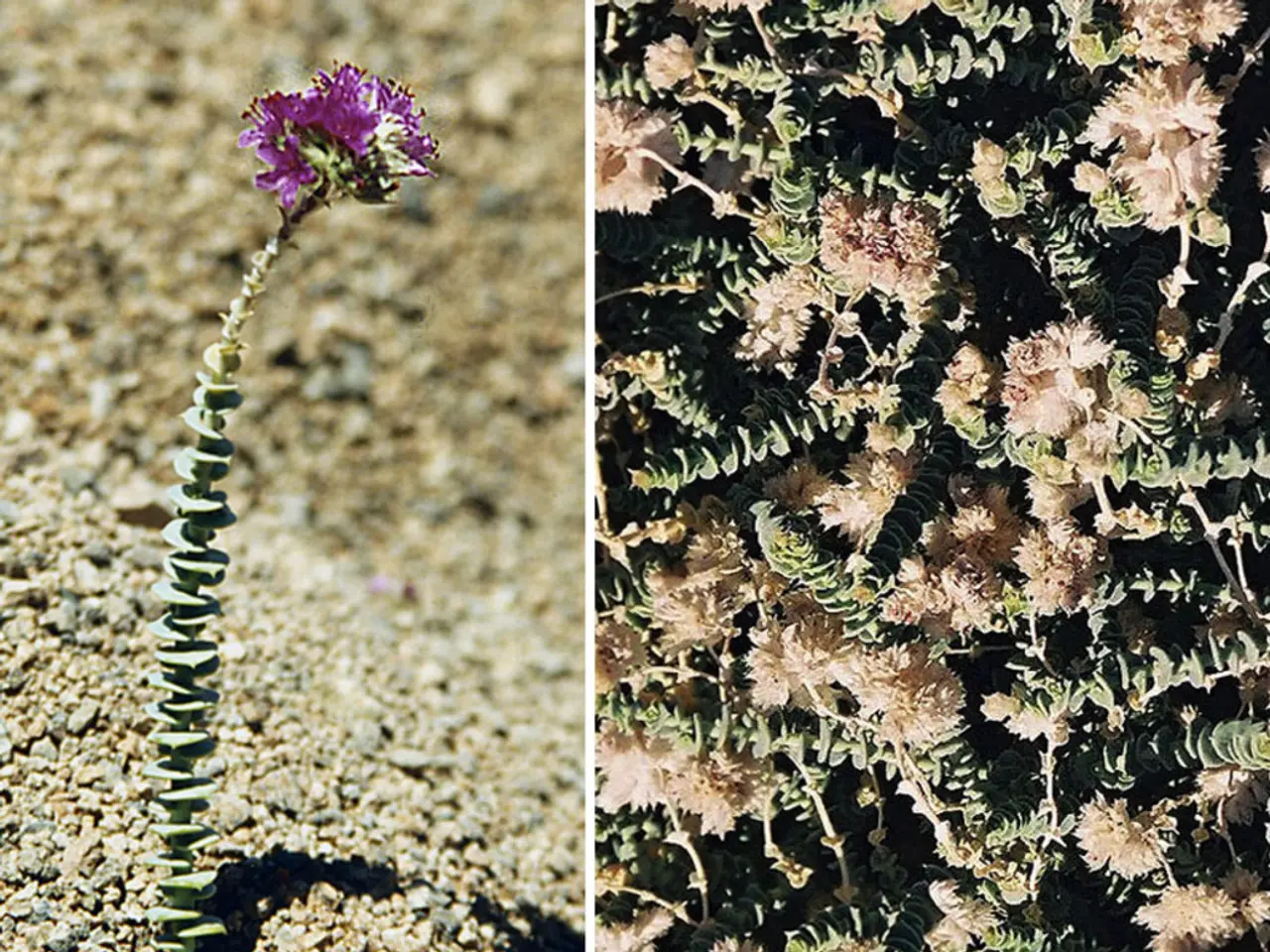Natural remedies for managing discomfort and swelling in psoriatic arthritis
Psoriatic Arthritis (PsA) is a chronic autoimmune condition that causes pain and inflammation in the joints. While there is no cure for PsA, current treatment options can relieve symptoms and slow progression. A growing body of research suggests that certain essential oils may offer additional relief, but it's essential to approach their use with caution.
The Arthritis Foundation recommends using essential oils that are 100% pure and do not contain additives such as alcohol. It's crucial to dilute these oils before application to avoid skin irritation and other problems.
Two essential oils with promising potential for PsA are turmeric and ginger. Turmeric, specifically its active compound curcumin, is known for its strong anti-inflammatory properties that may help alleviate PsA symptoms such as pain, swelling, and stiffness. A 2017 study found that people with knee osteoarthritis experienced less pain when they regularly massaged their knees with ginger oil.
Ginger has demonstrated anti-inflammatory effects and may reduce joint pain and stiffness in arthritis conditions. Some evidence supports benefits in rheumatoid arthritis, which shares inflammatory features with PsA.
Eucalyptus oil contains compounds with anti-inflammatory and analgesic effects. Its leaf extracts have tannins that reduce swelling, but clinical evidence in PsA is mostly anecdotal and extrapolated from other arthritis types. Eucalyptus may reduce pain, swelling, and inflammation in mice, but further research on humans is necessary.
Spearmint and peppermint oils (related mints) have been studied for pruritic and inflammatory skin conditions. Peppermint oil is known to stimulate cold receptors, causing a cooling analgesic effect, which may relieve itching and inflammation associated with psoriatic skin lesions. However, specific evidence for reducing psoriatic arthritis joint symptoms is lacking.
Lavender oil and copaiba oil have anti-inflammatory and pain-modulating properties. While direct research in PsA or psoriasis is minimal or not well established, they are reported to provide general pain and stress relief.
While essential oils show potential for symptom relief, research emphasizes topical safety concerns, the need for dilution, and caution in certain populations, such as pregnant women, children, and those with respiratory conditions. No essential oils are FDA-approved for PsA treatment, so they are considered complementary or adjunctive rather than stand-alone therapies.
It's crucial to consult a healthcare professional before starting any alternative treatments or therapies for PsA. The American Academy of Dermatology (AAD) recommends medications, physical therapy, massage therapy, and low-impact exercise as management options for PsA. People should not stop using prescription treatments in favor of essential oils or other alternative therapies without a doctor's permission.
In summary, turmeric and ginger have the most scientific support for anti-inflammatory effects relevant to PsA, while eucalyptus and peppermint oils may provide symptomatic relief mainly for skin symptoms or general arthritis pain. However, rigorous clinical trials in PsA specifically are lacking, and essential oils should be used cautiously alongside standard medical treatments under professional guidance.
- Turmeric, specifically its active compound curcumin, shows strong anti-inflammatory properties, which may be beneficial in alleviating symptoms like pain, swelling, and stiffness associated with Psoriatic Arthritis (PsA).
- A 2017 study showed that people with knee osteoarthritis experienced less pain after regularly massaging their knees with ginger oil. Ginger also demonstrates anti-inflammatory effects and may help reduce joint pain and stiffness in arthritis conditions, including PsA.
- Eucalyptus oil contains compounds with anti-inflammatory and analgesic effects, but clinical evidence for PsA is mostly anecdotal and extrapolated from other arthritis types. Its leaf extracts have tannins that could potentially reduce swelling.
- Spearmint and peppermint oils, related mints, have been studied for pruritic and inflammatory skin conditions. Peppermint oil may relieve itching and inflammation associated with psoriatic skin lesions due to its ability to stimulate cold receptors.




